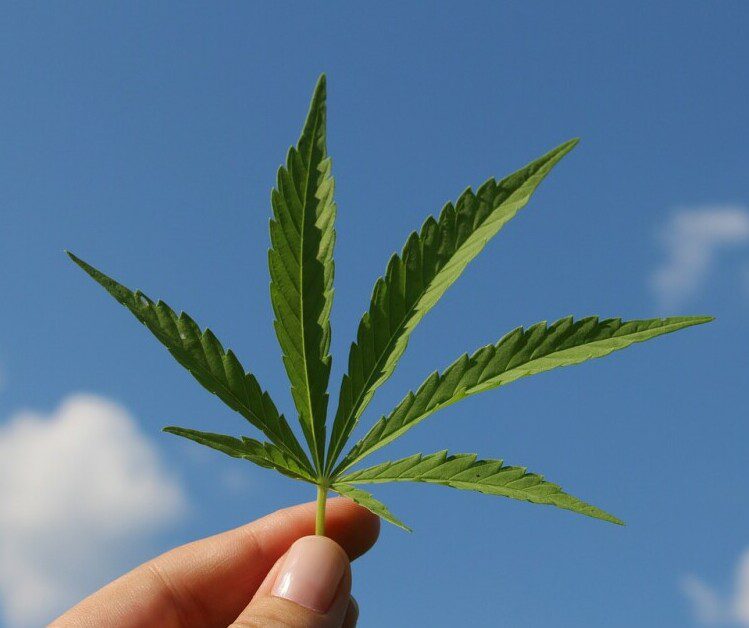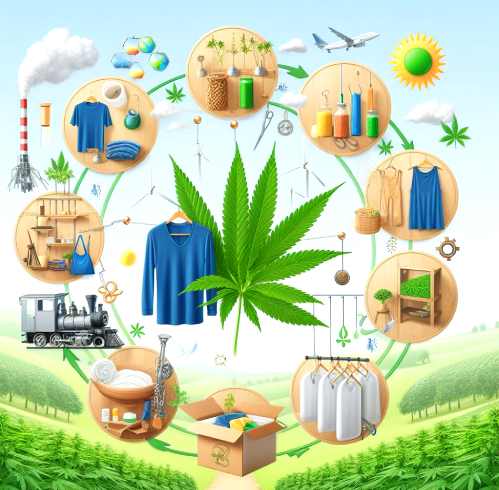
I’m often struck by the critical crossroads at which we find ourselves regarding the health of our planet. Every choice and action we take now directly shape the legacy we leave for future generations. The need for a sustainable way of life is not just a nice-to-have; it’s a must-have. We’re facing environmental threats that are global in scale climate change, diminishing natural resources, and biodiversity loss.
The ‘going green’ movement is not merely a passing trend. It’s the foundation upon which our survival, as well as Earth’s, rests. Renewable resources are key players in this movement. While solar and wind power are making headlines, it’s essential to look at all the options on the table. Industrial hemp is a prime example of a renewable resource with immense potential that warrants our full attention.

Legislation surrounding industrial hemp is evolving, signaling a wider acceptance and understanding of its environmental benefits. This plant is not just another crop; it’s a beacon of hope for a sustainable and prosperous future. As we explore the remarkable versatility and benefits of industrial hemp, we can begin to appreciate how it fits into the bigger picture of going green.
By the end of this section, it’s clear that the conversation about going green is nuanced and complex, and it necessitates resources like industrial hemp that have historically been sidelined despite their apparent benefits. With a deeper understanding and renewed legislation, we can now turn the page and consider how industrial hemp can contribute to our ecological and economic well-being.
Industrial Hemp: The Unsung Hero of Sustainability

Have you ever heard of a plant that has the capacity to revolutionize the way we consider environmental sustainability? Well, Industrial Hemp is that plant, an age-old rapidly renewable resource that’s experiencing a revival. This plant’s path has been turbulent, formerly central to a variety of applications, later outlawed, and now recognized anew for its potential to support a greener future.
There’s a common misconception tied to hemp, often confused with its psychoactive cousin. It’s vital to clarify that industrial hemp isn’t grown for its intoxicating properties; instead, it’s cultivated for the fibers, seeds, and oils that can be transformed into a multitude of eco-friendly products.
Why is hemp an environmental hero? It’s remarkably versatile. Hemp can be turned into textiles, building materials, biofuels, and bioplastics, proving that sustainability doesn’t have to sacrifice quality or functionality. Plus, hemp grows swiftly, requiring less water and pesticides, thus reducing environmental stress.

Consider this: while some crops take a toll on soil health, hemp rejuvenates the very ground it grows in, making future crops more viable. Its fast growth also means it absorbs more CO2 from the atmosphere, contributing to combatting climate change. The economic benefits of hemp are just as considerable, offering new opportunities in agriculture and industry that can help shift us towards more sustainable practices.
Embracing Hemp Innovation: Products that Can Change the World
The impact of industrial hemp goes far beyond what many of us realize. Surprisingly, this plant has the power to transform numerous industries with its eco-friendly properties. We’re talking about more than just paper and clothing; hemp can be used in biofuels, construction materials, and even biodegradable plastics.
Compared to traditional materials, those made from hemp demand less water, grow faster and leave a smaller carbon footprint. Hemp cultivation is a win for the environment as it absorbs carbon dioxide, enriches the soil, and supports biodiversity.
It falls on both consumers and producers to spearhead the shift towards hemp-based products. It’s simple: support companies that choose hemp, and if you’re a producer, consider the switch. The demand for sustainable solutions is booming and it’s a ripe time for businesses to innovate with hemp.

Envisioning the future, I see a world where hemp products are the norm, not the exception. By integrating hemp into our daily lives, we’re paving a path for a more sustainable, eco-conscious way of living. The narrative of industrial hemp is being rewritten, hemp is here to elevate our lives, not get us high.
Join the winning team, join the Industrial Hemp Revolution, the only Industrial Revolution with a ‘Going Green’ agenda.
Stacie Fortson, GGWHSF


8 Comments
Marios Tofarides
Hey Stacie,
I’m so excited to learn more about the incredible potential of industrial hemp products! It’s amazing to see how this versatile plant can be used to create sustainable solutions for our daily lives. From eco-friendly textiles to natural wellness products, the possibilities seem endless. I appreciate how Going Green with Hemp SF is dedicated to raising awareness about the benefits of industrial hemp and promoting a more environmentally conscious lifestyle.
As I explored the site, I was impressed by the wealth of information on the different uses of industrial hemp. The team is passionate about sharing their knowledge and inspiring others to make a positive impact on the planet. Whether you’re a seasoned eco-warrior or just starting your sustainability journey, this site is a fantastic resource for anyone looking to make a difference. Keep up the fantastic work, and I look forward to learning more about the innovative world of industrial hemp products!
Marios
Stacie Fortson
Marios,
I am very happy that you enjoyed my article and that you toured the site a little as well.
Welcome to the Industrial Hemp Revolution, the only Industrial Revolution that has ‘Going Green’ as an agenda.
Stacie Fortson, GGWHSF
Robby
Another great article for enlightenment. What I see is that most people do think that hemp plants are marijuana plants But although they are both the same species. Legally, hemp is defined as a cannabis plant that contains 0.3 % or less THC, while marijuana is a cannabis plant that contains more than 0.3 %t THC.
The only awareness I had of this product as I grew up through my trades, was the use of hemp in plumbing, using it with a putty for old-fashioned pipe work joints, and way back in underground drainage where we used a hemp-rope-coated with a grease-like product to centre the drainage pipes before we cemented the joints.
The topics on uses you bring to light in todays world in your articles is a great way to increase awareness and usage
Stacie Fortson
Robby,
I am so glad that you enjoyed my article and that I was able to bring awareness of the potential of the magnificent Industrial Hemp plant.
Welcome to the Industrial Hemp Revolution, the only Industrial Revolution that has had ‘Going Green’ as an agenda.
Stacie Fortson, GGWHSF
angelce903
Thanks for reminding us that hemp is more than a drug! Indeed, you can use hemp in many ways, especially in the clothing industry. In many ways, I’ve noticed that many people who don’t want to wear leather really rely on hemp. And I’ve seen many shoes and clothes and I’ve been amazed by the quality. This is a great way to have a green economy that is not harmful to living creatures.
Stacie Fortson
AngelCE903,
I am glad I could bring awareness to the multifaceted uses of Industrial Hemp. I hope you have discovered at least one of the many Hemp-based products I have reviews for as well.
Welcome to the Industrial Hemp Revolution, the Only Industrial Revolution with ‘Going Green’ as an agenda!
Stacie Fortson, GGWHSF
Lyn
Thank you for such an informative blog on a plant that has a reputation for just being a drug. I have heard of hemp oil and hemp being used to manufacture fabric but didn’t realise that it could be used to make other industrial products, such as building materials and plastics. How long do you think it will take for it to become main stream and utilised more. Are there impediments to getting approval to grow hemp from governments due to the fact that it is considered a drug? I’m interested to know why it’s not being utilised more. Thanks
Stacie Fortson
Lyn,
You are most welcome, I am glad I was able to unveil some of Industrial Hemp’s potential. This plant can really help us in so many ways!
Breaking away from the stigma created by the drug wars has been the biggest hurdle Hemp has faced since being banned. Unfortunately, that has been the hold-up on innovative product creation involving Industrial Hemp. Slowly but surely, we are seeing changes in regulations for growing the Hemp plant for fibers and seeds.
At this time, even to grow Industrial Hemp for fibers and seeds, you must apply for and obtain a hemp production license or authorization number issued by USDA, state, or tribe. Also, you must file an acreage report with the FSA, including the license or authorization number and identifying each field or subfield where hemp is to be planted. So even for industrial uses, there are a lot of hurdles to jump.
In the next few years, we should see even better regulations for the Industrial aspect of growing Hemp.
Welcome to the Industrial Hemp Revolution. Happy Hemp Product shopping!
Stacie Fortson, GGWHSF